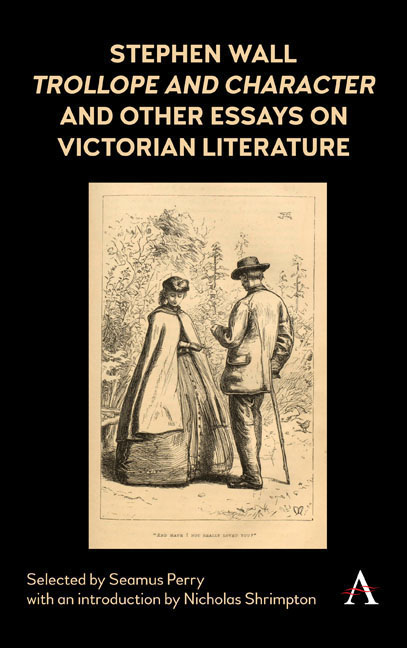Book contents
- Frontmatter
- Contents
- Preface
- Introduction: Stephen Wall and Trollope
- Part 1 On Trollope
- Part 2 On Dickens and Others
- 3 [George Eliot and Her Readers] [1965]
- 4 Jane Austen's Judgments [1968]
- 5 Dickens: New Words and Old Opinions [1969]
- 6 [Dickens and His Readers] [1970]
- 7 Dickens in 1970 [1971]
- 8 Annotated English Novels? [1982]
- 9 Affective Intentions [1985]
- 10 Virtuoso Variations [1987]
- 11 Going Beyond the Repertory [1990]
- 12 A Little Local Irritation [1998]
- Index
6 - [Dickens and His Readers] [1970]
from Part 2 - On Dickens and Others
Published online by Cambridge University Press: 25 July 2018
- Frontmatter
- Contents
- Preface
- Introduction: Stephen Wall and Trollope
- Part 1 On Trollope
- Part 2 On Dickens and Others
- 3 [George Eliot and Her Readers] [1965]
- 4 Jane Austen's Judgments [1968]
- 5 Dickens: New Words and Old Opinions [1969]
- 6 [Dickens and His Readers] [1970]
- 7 Dickens in 1970 [1971]
- 8 Annotated English Novels? [1982]
- 9 Affective Intentions [1985]
- 10 Virtuoso Variations [1987]
- 11 Going Beyond the Repertory [1990]
- 12 A Little Local Irritation [1998]
- Index
Summary
Contemporaneous Criticism
Dickens became a fact of English life very early in his career, and he has remained one ever since. The usual implications of the adjective ‘Dickensian’ indicate only a limited part of Dickens's effect on the popular imagination – an effect probably more radical than that made by any other English writer of comparable literary calibre. Some of his characters and some of the situations in his novels soon became, and have since remained, universally available references, a kind of shorthand of the common imagination. A mention of Scrooge, Pickwick or Micawber, or of the scene in which Oliver asks for more, is immediately intelligible to an extremely wide public. Our conceptions of Christmas, our images of towns and cities (London in particular), our understanding of the way children feel – these are the kinds of area in which Dickens's influence has been so profound that, paradoxically, it has become almost imperceptible, so completely has his way of seeing the world been assimilated into everyday life. This may partly be because, as Humphry House put it at the end of The Dickens World (1944), ‘He is still the only one of the great English novelists who is read at all widely among simple people.’
However, an awareness of Dickens is not dependent on having read him. Henry Crawford, in chapter 33 of Jane Austen's Mansfield Park, says of Shakespeare that
one gets acquainted with [him] without knowing how. It is part of an Englishman's constitution. His thoughts and beauties are so spread abroad that one touches them everywhere, one is intimate with him by instinct.
Crawford's words can be applied with even more force and appropriateness to Dickens, whose stories and characters have been the subject of endless dramatization, imitation and adaptation. From the days when crude plagiarisms of The Pickwick Papers attempted to cash in on the success of Dickens's first novel, and when versions of Oliver Twist were playing at three London theatres simultaneously, to the present period when his books are filmed, televised, made the subjects of musicals and cannibalized in comic books, the products of his imagination have been constantly before the public.
- Type
- Chapter
- Information
- Publisher: Anthem PressPrint publication year: 2018



